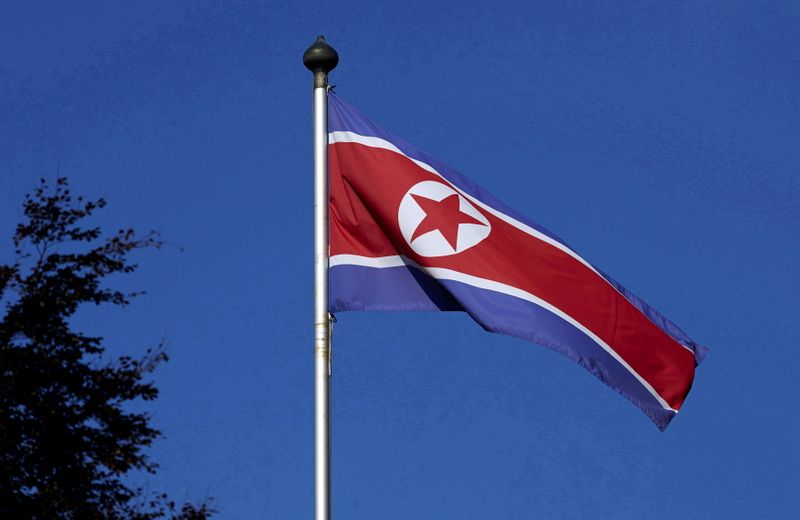By Josh Smith
SEOUL (Reuters) - From printing coupons as replacement cash to breeding ornamental black swans to eat, North Korea is being forced to innovate to handle economic woes and food shortages as anti-pandemic border lockdowns drag on, reports suggest.
With the harvest coming to an end, international observers say North Korea's food and economic situation is perilous, and there are signs that it is increasing trade and receiving large shipments of humanitarian aid via China.
South Korea’s intelligence agency told a closed-door parliamentary hearing on Thursday that North Korean leader Kim Jong Un had issued orders calling for every grain of rice to be secured and all-out efforts devoted to farming, according to lawmakers at the briefing.
Still, the spy agency assessed that this harvest may be better than last year's because of sunnier weather, and it said North Korea was taking steps to reopen its border with China and Russia in coming months, the lawmakers told reporters.
North Korea has long suffered from food insecurity, with observers saying that mismanagement of the economy is exacerbated by international sanctions over its nuclear weapons, natural disasters, and now the COVID-19 pandemic, which prompted unprecedented border lockdowns there.
Kim Jong Un has acknowledged a "tense" food situation and apologised for sacrifices citizens had to make to prevent a coronavirus outbreak.
But he also said the economy improved this year, and North Korea denied a report from U.N. investigators this month that said thousands of its most vulnerable people risked starvation.
North Korea has not officially reported a single coronavirus case. U.N. agencies said North Korea has recently begun to allow in shipments of aid, and numbers released by China show a slow increase in trade.
'DELICIOUS MEAT'
According to various media citing unidentified sources in North Korea, the central bank has been printing money coupons worth about $1 due to a shortage of North Korean won bills.
Rimjin-gang, a Japan-based website operated by North Korean defectors, reported the coupons had been circulating since at least August, in part because paper and ink for official currency were no longer coming in from China.
A shortage of won notes may also have been exacerbated by a government crackdown on the use of foreign currency, particularly U.S. dollars and Chinese renminbi that had been widely used before, said Seoul-based NK News, which said it had corroborated the reports.
Reuters was not able to independently confirm the use of the coupons.
This week North Korean state media promoted the consumption of black swan meat as a valuable food source, and said that newly developed industrial scale breeding would help improve people's lives.
"Black swan meat is delicious and has medicinal value," the ruling party newspaper Rodong Sinmun said on Monday.

Research into breeding the ornamental birds for food began in early 2019, and authorities have told schools, factories and businesses to grow food and raise fish and other animals to increase self-sufficiency, NK News reported.
"The solution is meant to address both the failure of large-scale farming to provide adequate food supplies to the whole country and more recent government COVID-19-related restrictions that have largely blocked food and other imports since early 2020," wrote Colin Zwirko, NK News senior analytic correspondent.